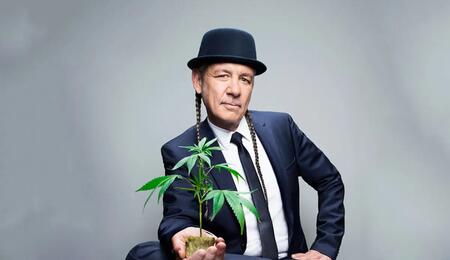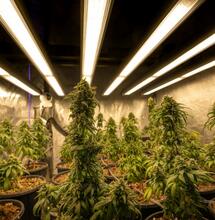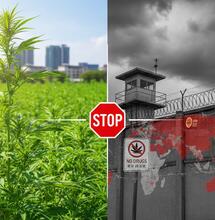How Would Steve DeAngelo Reimagine Cannabis?

Steve DeAngelo is often dubbed as The Father of Legal Cannabis. One of the country's most famous and finest activists, Cannabis has been a lifetime dedication for the Philadelphia-born icon. He has been fighting for it on the streets, in courts, and across the media. DeAngelo has also been part of various cannabis ventures, perhaps most notably Harborside. As a writer, he penned The Cannabis Manifesto: A New Paradigm for Wellness in 2015, and in 2019 he launched charity work with The Last Prisoner Project.
Steve DeAngelo, who is turning 65 this June 12, is one of the most high-profile pioneers in Cannabis. It seems like he has been there through it all. From the legalization of medicinal marijuana in California and the start of legal market to co-founding his own venture, Harborside, with which he parted ways in 2018 after more than a decade on board.
Aside from Harborside, DeAngelo has also co-founded Steep Hill, one of the first marijuana testing labs in California and the nation. Also, the industry's first and largest trade group, the National Cannabis Industry Association. And The ArcView Group, a hub for high-profile cannabis investors. Then, we cannot forget his dedication to the Last Prisoner Project, a charity focused on getting weed inmates out of prison.
After DeAngelo departed Harborside, launched in 2006, he started spending more time on activism, building the Radio Free Cannabis podcast and TV. Within this project, otherwise billed as the voice of the global cannabis freedom movement, DeAngelo reaches out to the most involved among cannabis activists, the real heroes and on-the-ground organizations that fight for the right to cannabis everywhere in the world.
With all of his work, in all these different segments, DeAngelo has grown his influence all over the cannabis sphere. Like part of the fiber, he has centered himself at the very heart of community.
Many people thought that Steve would not be part of the cannabis industry anymore after leaving Harborside a few years ago. He had spent twelve years as part of that company. However, his focus is still de facto very much on the industry, in particular how to make it better and more fair. With a focus on small businesses and small farmers. Lobbying for high-quality buds over industrialized mass-produced flower.
DeAngelo explicitly opposed corporate cannabis in an opinion piece titled Topple the Pyramid he wrote last year, where he expresses his undiluted support for craft cannabis and legacy growers.
"Almost everywhere I go, I find that my counterculture cannabis tribe, the people who love this plant the most, and sacrificed the most to make her legal, have been mostly purged from legal companies, and many of them have entirely lost their livelihoods. That's the way it is in California, and the way it is in Massachusetts, and the way it is in Illinois," he wrote.
He comments in an interview that the most important thing for him is "that we build a cannabis industry that reflects the values this plant teaches us." Therefore, envisioning free global cannabis, DeAngelo sets the pillars for ESG (environmental, social and governance) opportunities.
Imagining an alternate approach to regulating cannabis, DeAngelo tackles all aspects, such as limiting the square foot canopy — outlining that "1,000,000 square foot grow facilities don't work." Instead, he addresses the need for "human scale cultivation and handling" as the way that has always produced the finest buds.
"Human-scale cultivation and a short, direct route from the farm to consumers has always been what produced the highest quality cannabis — and it is the pathway out of the mess we are in today," he remarks in Topple the Pyramid. And he is very much on the spot. Especially after knowing how much industrially grown legal weed is trashed every year in the U.S. and Canada.
How could business alternatively work? He has a beautiful answer on that too: "Imagine a cannabis artisans village that housed 100 small producers in one geographic location. Consumers could walk from shop to shop, selecting from dozens of different strains and products, all of the highest quality. The same crowd would provide clientele for a range of other non-plant touching businesses: restaurants, boutiques, head shops, music and comedy venues, maybe even hotels. What a wonderful experience it would be."
Some of his other proposals for an industry reset include awarding licenses without taxing and reinventing distribution by allowing small farmers to use regular mail and package so they can be competitive in the online marketplace. Everything away from the thankless and impossible job of mass producing high-quality weed in large facilities that also cost millions to maintain.
I don't know about you, but if Steve DeAngelo was running for president someday, I would certainly vote for him.
















